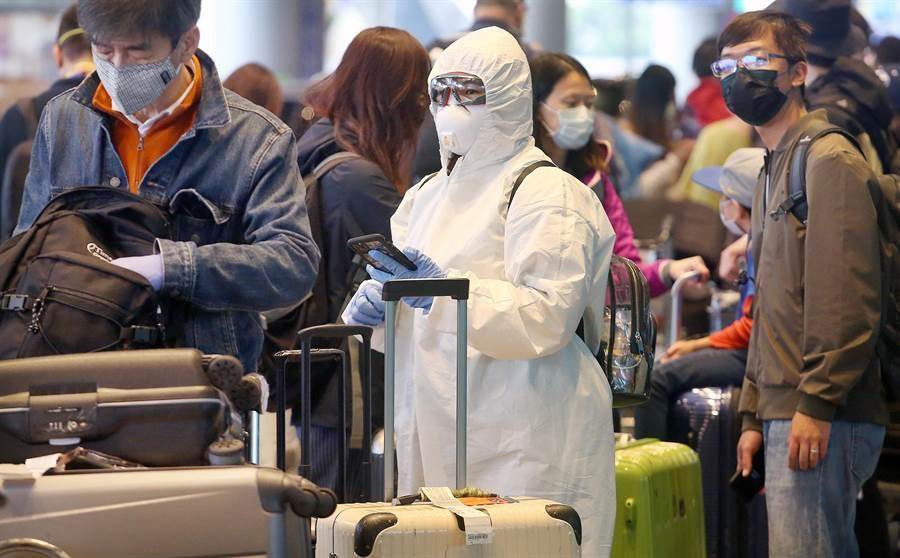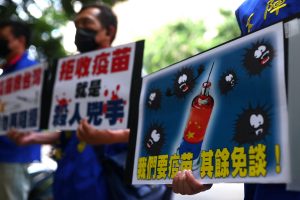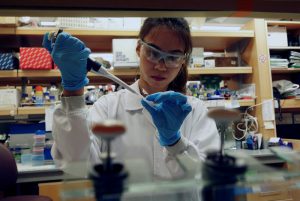The tech-leading island’s government is facing the prospect of having to impose a lockdown as coronavirus cases surge – and that is not the news chip-starved industries across the world wanted to hear
(ATF) After months of keeping the pandemic under control, Taiwan is now dealing with a surge in Covid-19 cases that threatens to trigger a lockdown.
The island faces a health emergency – only about 1% of its population is vaccinated so far – with the potential to disrupt the chip industry that dominates the local economy, and which is critical to an already-squeezed global supply.
“A highly contagious variant of Covid-19 first identified in Britain is now circulating around Taiwan, leading to a triple-digit increase of local cases for the eighth day,” a report by Taiwan’s English language news portal Taiwan News said on Saturday.
Also on ATF: China pushes for property tax to rein in runaway home prices
Taiwan, a major producer of semiconductors, is central to global efforts to resolve a chip shortage that has shut some car plants around the world and is starting to affect consumer electronics.
But a recent surge in cases – Taiwan’s worst outbreak since the start of the pandemic – comes just as a drought has triggered power outages, stoking economic uncertainty and a slump in what was the world’s best performing stock index in the four years to January.
For eight straight months till May 9, Taiwan recorded rare cases of community transmission of coronavirus, but just five days later new cases rose to 29, and then exponentially to 333 on May 17– spread across several parts of the region – with the health department on Saturday retrospectively adding 400 more cases to the previous week.
Data from the Center for Systems Science and Engineering (CSSE) at Johns Hopkins University showed 595 new cases were reported in Taiwan on Monday.
INFECTED EMPLOYEES
Several Taiwanese chipmakers, including Taiwan Semiconductor Manufacturing Co (TSMC) and Nanya Technology Corp, have reported Covid-19 infections among their employees.
“If Taiwan’s Covid cases continue to increase and the epidemic spreads to the fab-intensive south of Taipei, a large number of factories are bound to be affected by the closure… It could worsen the problem of global semiconductor supply shortages,” said Tony Phoo, a senior economist of Standard Chartered Bank in Taipei.
TSMC said on Saturday that one employee was home quarantined on Sunday (May 16) following exposure to a confirmed case over the weekend, before learning the test result. A dozen employees in close contact with the infected individual are undergoing 14-day home quarantine but it will not affect operations, the company statement read.
TSMC is the world’s leading provider of cutting-edge semiconductors and holds 56% of the so-called foundry business of manufacturing chips designed by customers including Apple and Qualcomm.
PREVENTION MEASURES
Meanwhile, Taiwan’s top memory chip maker Nanya Technology Corp said last Friday that an employee contracted the virus from family members and pandemic prevention measures were implemented to curb the spread of infections.
Nanya is the world’s fourth-largest maker of dynamic random access memory (DRAM) chips, behind Samsung, SK Hynix and Micron.
Several other tech companies, including iPhone assembler Wistron Corp and information technology service provider Systex, have also reported infections among employees.
The surge in domestic Covid-19 cases in Taiwan is intensifying pressure on the government to accept vaccines from China as the island’s 700,000 vaccines – all from AstraZeneca Plc (AZN.L) – are rapidly running out.
VACCINE PURCHASES
Taiwan’s government has kept vaccine purchase details under close wraps but has promised more are on the way.
Taiwan’s dominance of the microchip market is under attack as governments from the US to Europe and Japan, alerted to the strategic nature of the semiconductor supply chain, have sought to develop production at home.
US Senate Democratic Leader Chuck Schumer this month unveiled legislation to approve $52 billion to significantly boost US semiconductor chip production and research over five years.
CHIP OUTPUT
The European Union announced a plan in March to double its chip manufacturing output to 20% of the global market by 2030. Funding of about $160 billion has been earmarked for tech investment in chip manufacturing and 5G technologies.
Japan’s government wants TSMC and Sony Group to invest 1 trillion yen ($9.2 billion) to build the country’s first 20-nanometre chip plant, the Nikkan Kogyo newspaper reported on Wednesday.
China is also pumping billions into catching up after Washington imposed export controls on U.S. chip technology.
Read more:
Taiwan says chip industry well insulated from Covid outbreak
Biden sends delegation to Taiwan as supply chain looms large
























